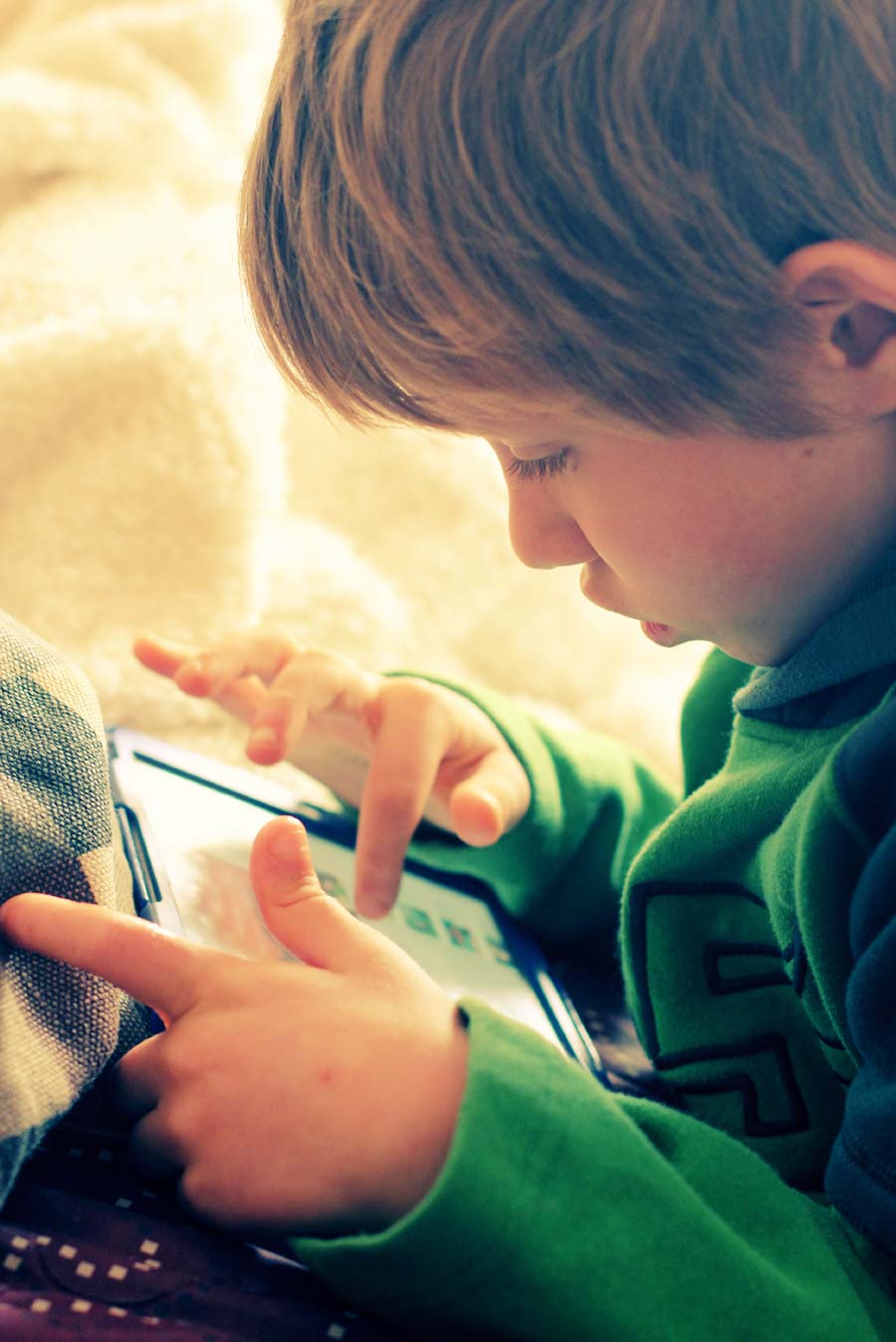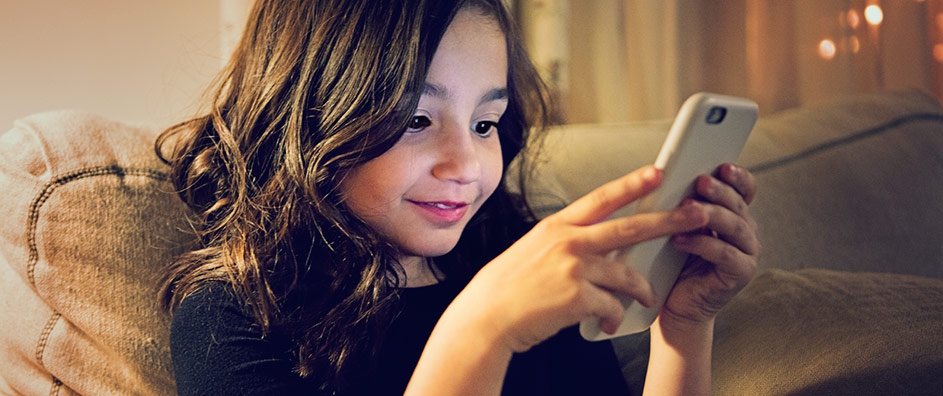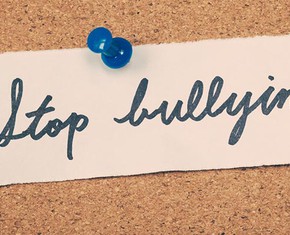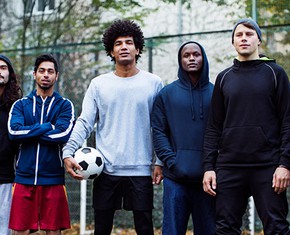The views expressed in our content reflect individual perspectives and do not represent the authoritative views of the Baha'i Faith.
My 11 (soon to be 12) year old daughter has begun practicing her legal debating skills again in a renewed campaign to gain access to social media. That’s what I get for going to law school.
Today, the debate involves Music.ly. Yesterday, it revolved around SnapChat. A few weeks ago, we discussed the pros and cons of Instagram at length. Her strategy? A combination of skilled intellectual gymnastics, mature reasoning, tears evoked by comparisons to what her friends are allowed to do, and silent death-stares when she loses the battle. Of course, that doesn’t stop her from resuming the contest of wills again tomorrow.
This exhausts my husband and I. Sometimes we just want the arguments to go away, and we consider caving. The pressure is relentless. We feel like bad parents, both for trying to protect her and for “depriving” her—it’s a no-win situation.
Despite the pressure, we all know that social media isn’t a safe space for children. It can result in bullying, sexting, easy access to pornographic messages, trolling by strangers, and a permanent digital footprint on record forever. But, many parents disregard these risks because we trust our children, we’ve put controls in place, we love them and want them to be happy, and because, well… sometimes we just give in.
I keep telling myself that we have to remain firm. We need to be firm, not only because of the risks, but also because of the law. Yes, fellow parents, we do have the law on our side.
 In the year 2000, the United States implemented a law called COPPA (Children’s Online Privacy Protection Act). Now applicable globally, COPPA protects children under 13 years old. COPPA requires that operators of websites or online services that are either directed to children under 13, or have actual knowledge that they are collecting personal information from children under 13, give notice to parents and get their verifiable consent before collecting, using, or disclosing such personal information, and keep secure the information they collect from children. It also prohibits them from conditioning children’s participation in activities on the collection of more personal information than is reasonably necessary for them to participate.
In the year 2000, the United States implemented a law called COPPA (Children’s Online Privacy Protection Act). Now applicable globally, COPPA protects children under 13 years old. COPPA requires that operators of websites or online services that are either directed to children under 13, or have actual knowledge that they are collecting personal information from children under 13, give notice to parents and get their verifiable consent before collecting, using, or disclosing such personal information, and keep secure the information they collect from children. It also prohibits them from conditioning children’s participation in activities on the collection of more personal information than is reasonably necessary for them to participate.
Additionally, iTunes and other online entities rate apps based on their appropriateness for children. Ratings are based on access to inappropriate content and other factors.
Both the COPPA law and its rules for app makers are carefully designed to protect children. Of course, online services have a financial interest in allowing as many people to use them as possible—so they often “underrate,” not “overrate” access. In other words, when the law sets a minimum age for use, it is set for good reasons.
Music.ly’s terms of service, for example, clearly state in all caps: “THE SERVICE IS NOT FOR PERSONS UNDER THE AGE OF 13… IF YOU ARE UNDER 13 YEARS OF AGE, YOU MUST NOT USE OR ACCESS THE SERVICE AT ANY TIME OR IN ANY MANNER.”
Despite the law and the warnings, many children use these apps, often with the consent of their parents. To use these apps kids must either lie about their age, or convince their parents to do it for them.
This, beleaguered parents, is where religion comes in.
The Baha’i teachings require that Baha’is obey the laws of their country. We are not permitted to decide that we simply disagree with them and can therefore disregard them. Baha’is obey the law, Federal, state and local, unless submission to these laws amounts to a denial of their Faith. We teach our children to grow up as law-abiding citizens, as well.
The Baha’i teachings also say that truthfulness is paramount. Lying and dishonesty are despicable, even if the lie is about something small like a social media app:
Beautify your tongues, O people, with truthfulness, and adorn your souls with the ornament of honesty. Beware, O people, that ye deal not treacherously with any one. – Baha’u’llah, Gleanings from the Writings of Baha’u’llah, p. 296.
Truthfulness is the foundation of all the virtues of the world of humanity. Without truthfulness, progress and success in all of the worlds of God are impossible for a soul. When this holy attribute is established in man, all the divine qualities will also become realized. – Abdu’l-Baha, Tablets of Abdu’l-Baha, Volume 2, p. 459.
With this kind of clear guidance, even children can understand that the ultimate rules of life don’t just emerge from haphazard parental fiat or random authority—instead, they come directly from a higher source. Parents have to follow them, too.
Society’s standards often seem so different from our own, and the pressure on our children to conform sometimes feels overwhelming. This can make parents lose confidence that their principled approach will produce a better child, and fear it will result in a rebellious one. These aren’t easy decisions. Every day, we second-guess ourselves.
But we do know that we cannot look to society’s prevailing standards as our guide. We know, too, that a strong moral framework—one which respects the law and stands up firmly against any form of dishonesty—will inevitably benefit our children in the long run.
You May Also Like
Comments

















With the rise in incidents of predators using social media, it's a definite no for me. I would rather the kid mad at me than have to be sitting in a police station filing a missing person's report.